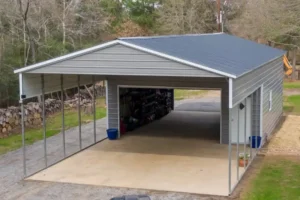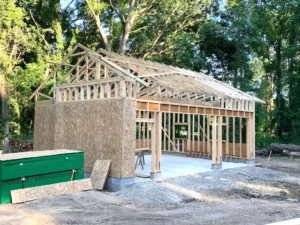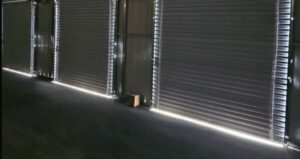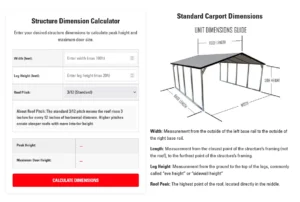8 Minute Read
14 Gauge vs 12 Gauge Steel: Is Upgrading Your Structure Worth It?
When investing in a metal building or carport, one of the most important decisions you’ll face is choosing the right steel gauge. This choice significantly impacts the durability, strength, and longevity of your structure.
At The Carport Co, we understand that making an informed decision about steel gauge can be challenging, which is why we’ve created this comprehensive guide to help you determine whether upgrading from 14 gauge to 12 gauge steel is the right choice for your specific needs.
To speak with a Carport Co. team member, call (888) 293-5588, email [email protected], or request a FREE estimate. You might also find our 3D Design Tool helpful for visualizing your future storage building.
Get Your FREE Custom Quote
It’s quick and easy! Get a quote for an engineer stamped metal structure today!

Manufactured in the United States

Competitive Warranties

Licensed and Insured Installers

Outstanding Customer Service
Structures That Stand Strong™
Table of Contents
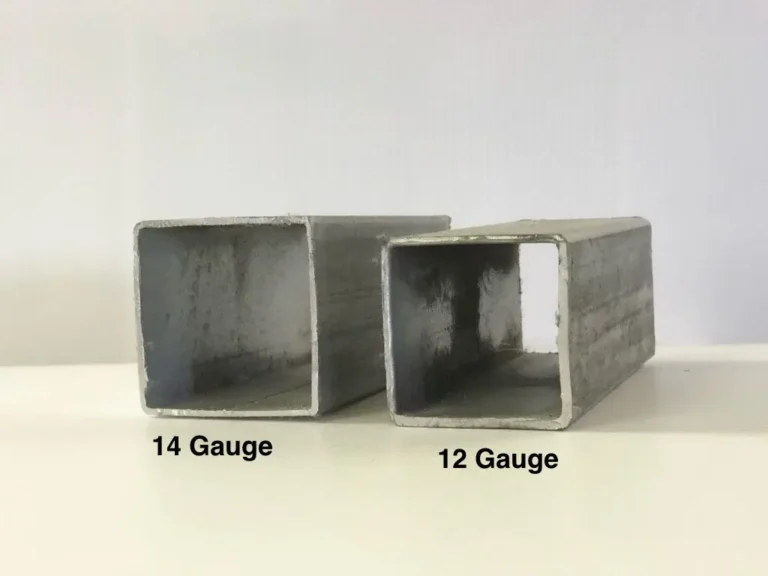
Understanding Steel Gauge Measurements
Before diving into the comparison, it’s essential to understand what gauge measurements actually mean. Contrary to what might seem logical, the lower the gauge number, the thicker the steel. This means that 12 gauge steel is actually thicker and stronger than 14 gauge steel.
- 14 gauge steel is approximately 0.0747 inches (1.9 mm) thick
- 12 gauge steel is approximately 0.1046 inches (2.7 mm) thick
This difference of about 0.03 inches might seem minimal, but it translates to a significant increase in strength and durability for your metal building or carport.
14 Gauge Steel: The Standard Option
Many prefabricated metal structures come standard with 14 gauge steel framing. This gauge offers:
- Cost-effectiveness: More affordable upfront investment
- Adequate protection: Sufficient for many standard applications
- Lighter weight: Easier handling during installation
- Suitable for mild weather conditions: Works well in areas with moderate climate conditions
14 gauge steel is perfectly adequate for many applications, particularly in regions with mild weather patterns and for structures that won’t bear heavy loads.
12 Gauge Steel: The Upgrade Option
Upgrading to 12 gauge steel provides several advantages:
- Superior strength: Approximately 40% stronger than 14 gauge
- Enhanced durability: Better resistance to bending, denting, and impacts
- Increased load-bearing capacity: Supports heavier snow loads and wind pressure
- Extended lifespan: Potentially adds years to your structure’s useful life
- Better investment protection: Provides greater security for vehicles and stored items
Should You Upgrade to 12 Gauge Steel
Consider Upgrading If:
- You live in an area with extreme weather conditions
Regions prone to heavy snowfall, high winds, hurricanes, or tornados benefit significantly from the additional strength of 12 gauge steel. The thicker material provides better resistance against these severe weather events.
- You need a larger span or wider building
Larger structures experience more stress and may require the additional strength of 12 gauge steel to maintain structural integrity, especially for wide-span buildings without interior supports.
- You’re storing valuable equipment or vehicles
If you’re protecting high-value assets like RVs, boats, farm equipment, or commercial vehicles, the additional security and durability of 12 gauge steel provides better protection and peace of mind.
- You want a long-term investment
If you’re planning to use your metal building for many years, the additional upfront cost of 12 gauge steel may pay off through extended lifespan and reduced maintenance costs.
- You require commercial or industrial use
Commercial applications generally face more rigorous use and may benefit from the additional strength and durability of 12 gauge steel.
14 Gauge May Be Sufficient If:
- You’re in an area with mild weather
In regions with minimal snow, moderate winds, and limited severe weather events, 14 gauge steel often provides adequate protection.
- You have budget constraints
If you’re working with a tight budget, 14 gauge steel offers a good balance of affordability and functionality.
- You need a smaller structure
Smaller carports and buildings experience less stress and may not require the additional strength of 12 gauge steel.
- You’re using it for basic storage or protection
For basic vehicle protection or general storage of non-valuable items, 14 gauge steel typically provides sufficient protection.
Cost Considerations: Is Upgrading Worth the Investment?
Upgrading from 14 gauge to 12 gauge steel typically increases the total cost of your metal building by approximately 15-25%. While this represents a significant upfront investment, it’s important to consider the long-term value:
- Extended lifespan: 12 gauge structures often last years longer than their 14 gauge counterparts
- Reduced maintenance costs: Stronger materials mean fewer repairs over time
- Better insurance options: Some insurance companies offer better rates for more robust structures
- Higher resale value: Sturdier buildings typically command higher prices if you decide to sell your property
When calculating the true cost difference, it’s important to consider the per-year cost over the entire lifespan of the building. For example, if a 12 gauge building costs 20% more but lasts 30% longer, it may actually be more economical in the long run.
Real World Performance Comparison
Snow Load Capacity
12 gauge steel can support significantly more snow weight before showing signs of stress. In areas where snow accumulation is common, this additional strength can prevent costly collapses and structural failures.
Wind Resistance
During high wind events, 12 gauge frames demonstrate superior resistance to twisting and bending. This is particularly important for taller structures or buildings in open areas where wind forces are stronger.
Impact Resistance
The thicker material of 12 gauge steel provides better protection against impacts from falling branches, hail, or accidental collisions, resulting in fewer dents and structural issues over time.
Making Your Decision
When deciding between 14 gauge and 12 gauge steel for your carport or metal building, consider these factors:
- Local climate conditions: Assess your area’s typical weather patterns and extremes
- Building size and purpose: Larger structures and those protecting valuable items benefit more from upgrading
- Budget constraints: Balance immediate costs against long-term value
- Local building codes: Some localities may have specific requirements for steel gauge based on expected snow loads or wind speeds
- Personal peace of mind: Consider the value of additional security and durability for your specific situation
At The Carport Co, we offer both 14 gauge and 12 gauge options to meet diverse needs and budgets. Our team can help you evaluate your specific requirements and recommend the best solution for your project.
Ready to Work With The Carport Co. for Your Building?
When you choose The Carport Co., you’re not just buying a steel carport or metal building—you’re getting a partner who’s committed to your satisfaction. Here’s what sets us apart:
Competitive Pricing: All of our pricing is either factory-direct, or less than factory direct through dealer exclusive sales and discounts.
Nationwide Coverage: We serve the majority of the United States, bringing durable carports to your doorstep (or driveway).
Premium Materials: Our metal buildings are made from prefabricated tube steel (galvanized steel), available in both 14-gauge and 12-gauge for added strength and durability.
Expert Guidance: Our team is here to help you every step of the way, from choosing the right structure to installation.
Frequently Asked Questions
What does gauge mean in steel thickness?
Gauge is a traditional measurement system for steel thickness where the lower the number, the thicker the steel. In metal buildings, common gauges range from 10 (thickest) to 16 (thinnest), with 12 and 14 being the most popular options for carports and metal buildings.
How much stronger is 12 gauge steel compared to 14 gauge steel?
12 gauge steel is approximately 40% thicker than 14 gauge steel, which translates to significantly higher strength. This additional strength provides better resistance to bending, impacts, snow loads, and wind pressure.
Will 14 gauge steel rust faster than 12 gauge steel?
Both 14 and 12 gauge galvanized steel have similar rust-resistant properties. The longevity difference comes primarily from structural strength rather than rust resistance. Both options, when properly galvanized, offer excellent protection against rust and corrosion.
Does upgrading to 12 gauge steel affect the warranty?
Many manufacturers, including The Carport Co, offer extended warranty terms for 12 gauge structures due to their increased durability and strength. Always check the specific warranty details when making your purchase.
Can I upgrade only certain parts of my metal building to 12 gauge?
Yes, strategic upgrading is often possible. Many customers choose to upgrade the frame to 12 gauge while keeping roof panels at 14 gauge, or reinforce specific high-stress areas with thicker steel. This approach can provide cost-effective strength where it matters most.
How much extra does it cost to upgrade from 14 to 12 gauge steel?
While prices vary based on building size and design, upgrading typically adds about 15-25% to the total cost of your metal building. For a specific quote based on your design, visit our Get Quote page.
Do local building codes require a specific gauge of steel?
Building code requirements vary by location. Some areas with high snow loads or wind speeds may require 12 gauge or stronger steel for certain applications. Always check with local building authorities before finalizing your purchase.
Can I tell the difference between 12 and 14 gauge steel by looking at it?
It can be difficult to distinguish between the two by visual inspection alone. The 0.03-inch difference is noticeable when placing samples side by side or by weight, but may not be immediately apparent in an installed structure. Always verify the gauge specifications in your purchase documentation.
Table of Contents
Ready to Begin Your Project?
Do you think The Carport Co. would be a good fit for you? We’d love to earn your business. Fill out the quote form, and one of our friendly representatives will be in touch with you shortly. We’re here to answer questions you may have, provide personalized recommendations, and get you an estimate on your project.
To speak with someone, call (888) 293-5588 or email [email protected].
Don’t miss out on the opportunity to enhance your property with a durable, versatile, and visually appealing metal structure. Contact The Carport Co. today and experience what we can do.
Visit our 3D Builder to design your own structure!
Get Your FREE Custom Quote
No-obligation, 100% FREE quote, delivered in minutes.
The Ultimate Buyer’s Guide is a collection of articles by The Carport Co. These articles have been catered to first time steel and metal carport, garage, and commercial building buyers. Our goal is to share as much information with customers as possible, to help make informed decisions, and ensure a customer doesn’t discover an addition they would have liked to added at the time of sale, but was not aware of the option’s existence.
Here is a preview of a few articles. To view the full Buyer’s Guide, please visit the Ultimate Buyer’s Guide page.

